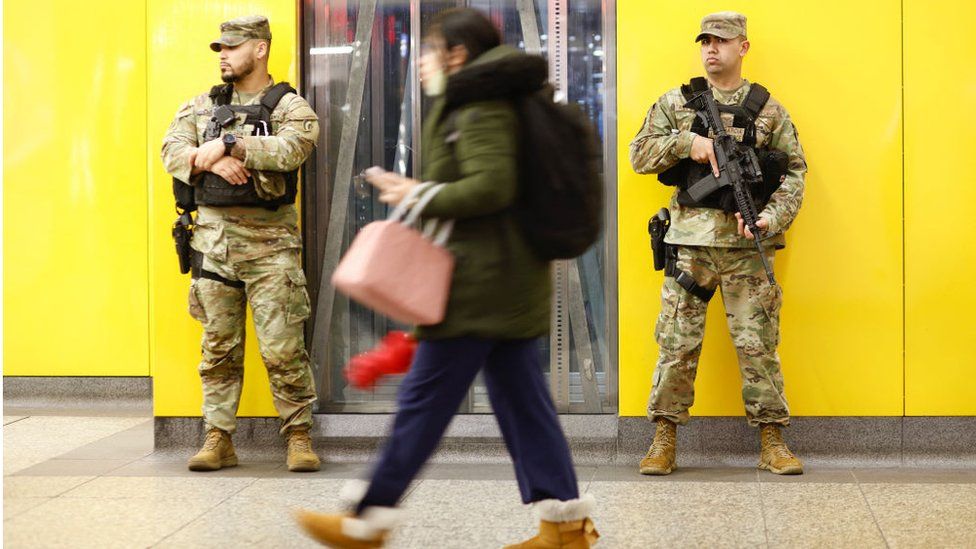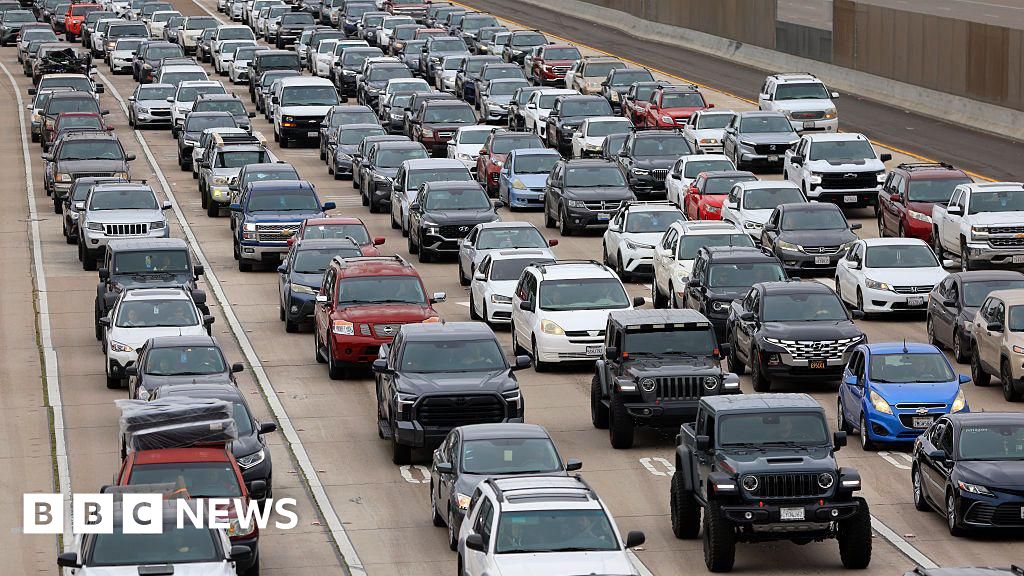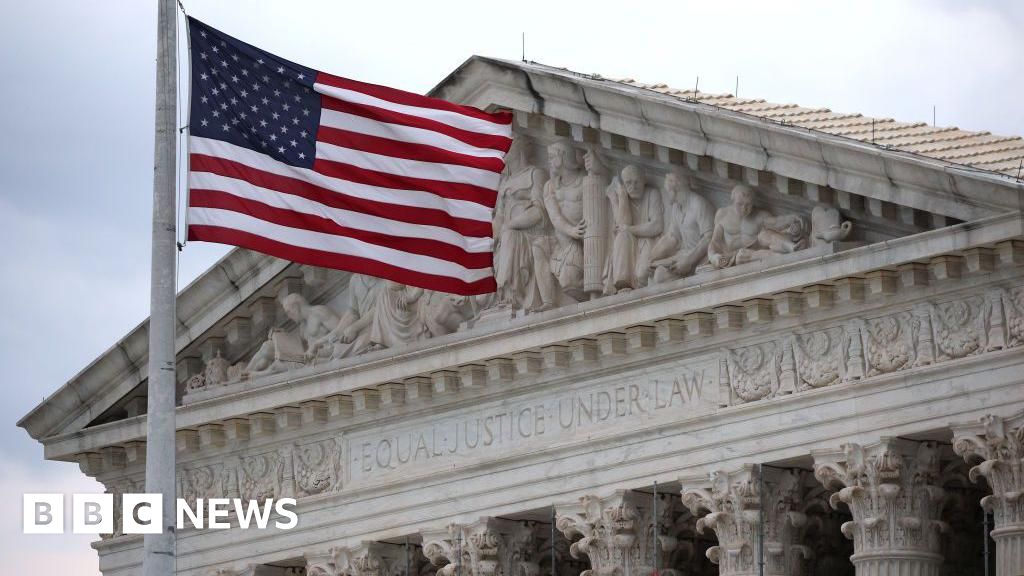ARTICLE AD BOX
 Image source, AFP via Getty Images
Image source, AFP via Getty Images
National Guard members stand watch at New York City's Penn Station.
By Kayla Epstein
BBC News, New York
New York City subway riders have had a mixed reaction to Governor Kathy Hochul's decision to send National Guard troops to guard the system.
Some commuters told the BBC the deployment was a good idea. Others expressed concern it might lead to racial profiling.
The troops began working in the largest stations on Wednesday.
The governor said she sought to "rid our subways of people who commit crimes, and protect all New Yorkers".
In her remarks on Wednesday, the governor invoked a string of headline-grabbing violent assaults. Three homicides have taken place since January.
"These brazen, heinous attacks on our subway system will not be tolerated," she said.
The overall picture of crime in New York's transit system is complex.
Last year, overall crime fell about 3% from 2022, reports the New York Times. But this year, major crimes have increased 13% so far.
Image source, Anadolu
Image caption,Police check bags at a New York City subway station.
The National Guard already patrols the major transportation hubs like the Port Authority terminal and Grand Central Station, under a programme launched after the 11 September 2001 attacks.
Ms Hochul's plan gives 750 guardsmen the additional mission of monitoring major entry points to the subway.
Another 250 personnel including state troopers and transit police are part of the beef-up in security. The governor did not say how long the measures would remain in place.
But her plan has its sceptics - including among riders themselves.
"I'm not thrilled," said Matt Craig, 71, as he prepared to enter the Fulton Street station. "I don't like the army running around the subways and I don't think we need them. Police are fine."
The Brooklyn resident and daily commuter said he thought Ms Hochul, a Democrat, was implementing the plan for "political purposes".
Republicans have repeatedly highlighted crime as an issue during elections.
Image source, Adam Gray/Getty Images
Image caption,New York Governor Kathy Hochul announces that the National Guard will stand watch in the subways
Criminal justice experts told the BBC that Ms Hochul's plan would probably not address the core causes of subway disturbances and could raise constitutional issues.
"A mental health crisis and a homelessness crisis is being treated like it's a crime crisis," said Jeffrey Fagan, an expert on crime, policing and public safety at Columbia University.
"There is crime on the subway, it's not in epidemic proportions. "
As they hurried through some of New York's busiest subway stations, some commuters told the BBC they welcomed the National Guard presence, while also saying they had not personally experienced crime in the system.
"I think it's a great idea," said Lila, a woman in her 70s who asked the BBC only to use her first name. "Too much crime. Too many crazy people in the streets."
David Ferber, 81, told the BBC at Union Square station: "I hate the notion of militarising civilian stuff.
"But I think seeing police around or National Guard, people in uniform will restrain people from doing the bad things that have been getting publicity."
Police reform advocates said Ms Hochul's announcement that the National Guard would search bags carried echoes of a policing practice known as stop and frisk, which was found to disproportionately target minorities.
Being stopped and searched "would ruffle some feathers a little bit because I am a black male, and I know people of colour would feel a way about that", said Aaron Hayes, 26.
"We live in New York, it's a melting pot full of different cultures," he said.
Mr Hayes wanted to wait and see whether National Guard members in the subway would improve the daily commute for riders like him.
"It would definitely have an impact," Mr Hayes said. "Safer? I'm not sure."

 1 year ago
109
1 year ago
109








 English (US) ·
English (US) ·